Politics
Trump says ‘open’ to considering lifting Iran sanctions
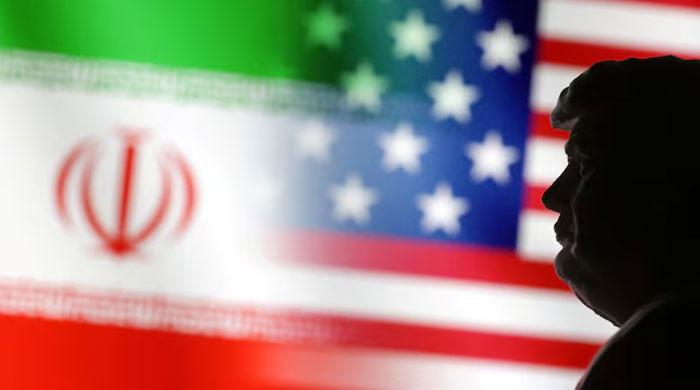
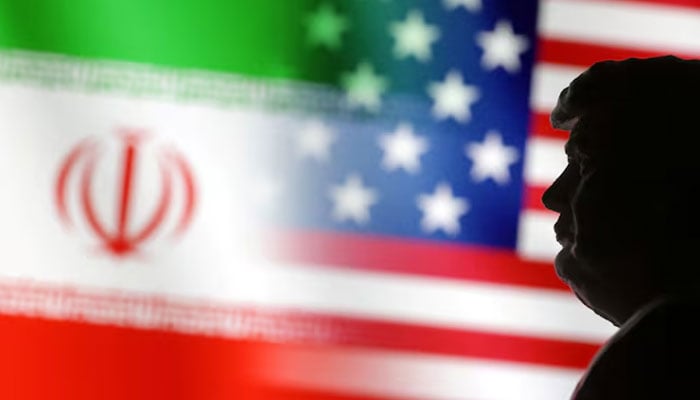
- Western nations accuse Iran of pursuing nuclear weapons ambitions.
- Iran maintains nuclear program only for peaceful energy purposes.
- Sanctions target Iran’s nuclear and ballistic missile-linked dealings.
Washington: President Donald Trump said on Thursday that Iran has asked for heavy US sanctions against Tehran to be lifted — and that he is open to having a discussion about it.
“Frankly, Iran has been asking if the sanctions could be lifted. Iran has got very heavy US sanctions, and it makes it really hard,” Trump said during a dinner with Central Asian leaders.
“I’m open to hearing that, and we’ll see what happens, but I would be open to it.”
Western countries, including the United States, have long accused Iran of seeking to acquire atomic weapons, while Iran insists its nuclear program is for peaceful purposes.
Tehran has been reeling under years of international sanctions, especially after the United States in 2018 withdrew from an international nuclear accord with Tehran and reimposed tough punitive measures.
In mid-June, Israel launched an unprecedented bombing campaign against Iran, triggering a war which saw the United States join briefly with strikes on Iranian nuclear sites.
The 12-day war with Israel, which prompted an Iranian response with missile and drone strikes, derailed nuclear talks between Tehran and Washington, which had begun in April.
Trump said that Iran had once been the “bully of the Middle East” but no longer had the “possibility of nuclear weapons.”
The Republican president, who returned to office in January, has repeatedly said the strikes obliterated Iran’s nuclear program, but the full extent of the damage remains unknown.
In September, the United Nations reinstated sanctions against Tehran under the so-called “snapback” mechanism after Britain, France, and Germany triggered the process.
Those measures bar dealings linked to the Islamic republic’s nuclear and ballistic missile activities.
Oman, which has hosted several rounds of US-Iran nuclear talks, has called on both sides to return to negotiations.
The talks had aimed for a new agreement that would curb Iran’s nuclear activities in return for sanctions relief.
Politics
Kazakhstan Set to Join Abraham Accords, Says US President
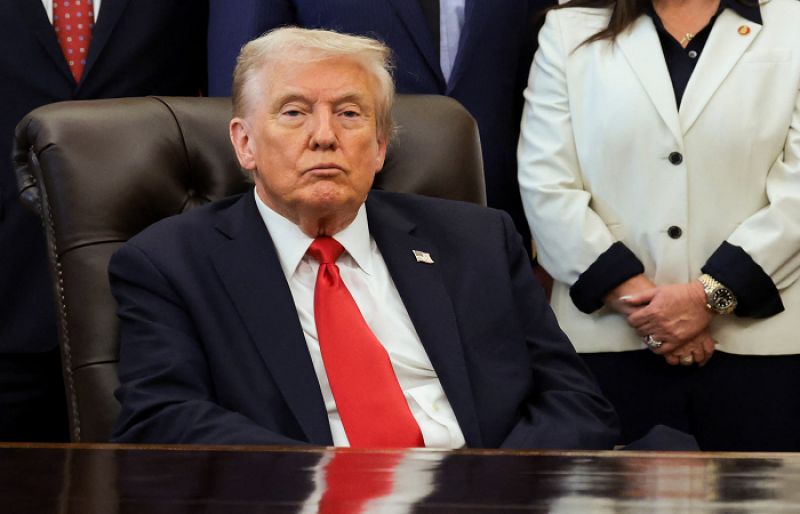
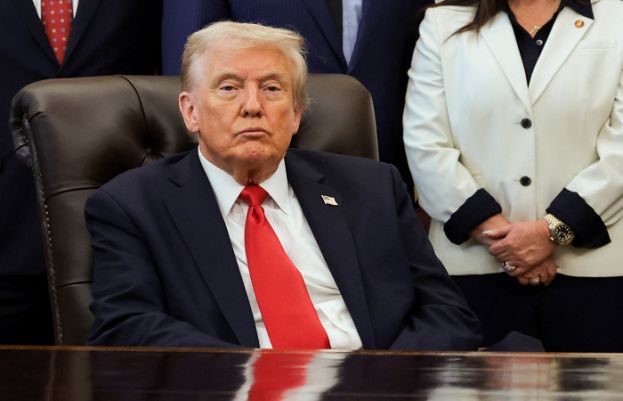
US President Donald Trump announced on Thursday that Kazakhstan will join the Abraham Accords, a move aimed at normalizing relations between Israel and Muslim-majority nations.
The announcement came after Trump said he had spoken with Israel’s Prime Minister Benjamin Netanyahu and Kazakhstan’s President Kassym-Jomart Tokayev.
“We will soon announce a signing ceremony to make it official, and many more countries are seeking to join this club of STRENGTH,” Trump wrote on Truth Social.
The Kazakh government said in a statement that the accession was in the final stages of negotiation. “Our anticipated joining of the Abraham Accords represents a natural continuation of Kazakhstan’s foreign policy — grounded in dialogue, mutual respect, and regional stability,” it added.
Kazakhstan already maintains full diplomatic and economic ties with Israel, making the move largely symbolic, though US Secretary of State Marco Rubio emphasized on Thursday that it represents “an enhanced relationship beyond just diplomatic relations.”
Rubio explained, “It creates a partnership with all other countries in the accord, bringing unique economic development opportunities and cooperative projects across multiple sectors.”
Trump met with Tokayev and leaders from Kyrgyzstan, Tajikistan, Turkmenistan, and Uzbekistan at the White House, as the US seeks to expand its influence in a region traditionally dominated by Russia and increasingly courted by China.
“Some of the countries represented here are going to be joining the Abraham Accords, and announcements will be made shortly,” Trump said.
Witkoff returning for announcement
US special envoy Steve Witkoff said earlier at a business forum in Florida that he would be returning to Washington for the announcement, without naming the country.
Axios first reported that the country would be Kazakhstan.
A second source familiar with the matter said the United States hopes that Kazakhstan’s entry will help reinvigorate the Abraham Accords, the expansion of which has been on hold during the Gaza war.
Trump has repeatedly said he wants to expand the accords that he brokered during his first term in the White House.
The United Arab Emirates and Bahrain established ties with Israel in 2020 under the Trump-brokered Abraham Accords. Morocco established ties with Israel later the same year.
Trump has been upbeat about the prospects that regional heavyweight Saudi Arabia will finally join the accords since a ceasefire went into effect in Gaza last month, but Riyadh has shown no willingness to move ahead without at least a pathway to Palestinian statehood.
Saudi Arabia’s Crown Prince Mohammed bin Salman is expected to visit the White House on November 18.
Other Central Asian countries such as Azerbaijan and Uzbekistan, both of which have close ties with Israel, have also been seen as potentially joining the Abraham Accords, which is considered a signature foreign policy achievement of Trump’s first term.
Politics
US president says Kazakhstan to join Abraham Accords
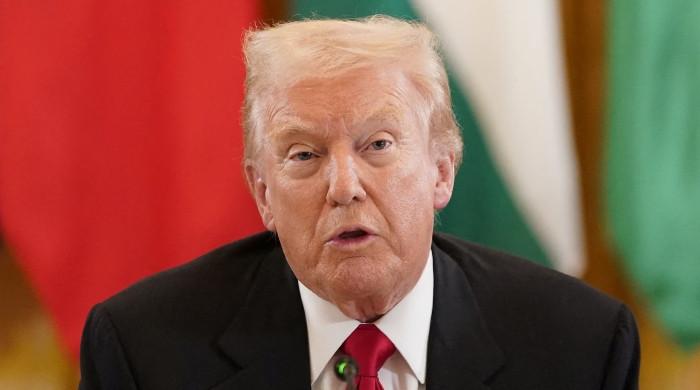
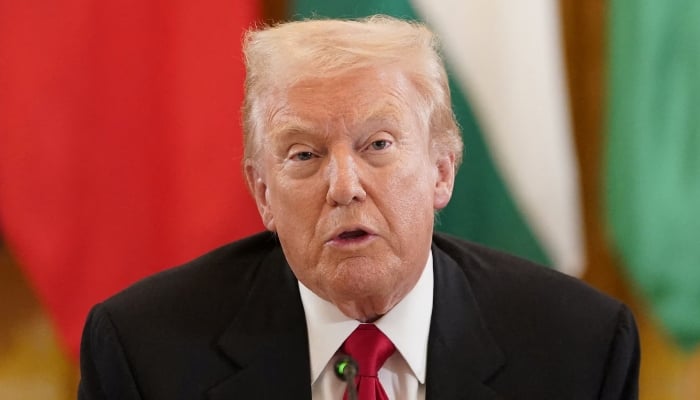
- Kazakhstan’s accession to Abraham Accords in final stage.
- Kazakhstan already has diplomatic and economic ties with Israel.
- Trump seeks to expand accords amid regional geopolitical shifts.
WASHINGTON: US President Donald Trump said on Thursday that Kazakhstan will join the Abraham Accords to have normalised relations between Israel and Muslim-majority nations.
The announcement came after Trump said he had held a call with Israel’s Prime Minister Benjamin Netanyahu and Kazakhstan’s President Kassym-Jomart Tokayev.
“We will soon announce a Signing Ceremony to make it official, and there are many more Countries trying to join this club of STRENGTH,” Trump wrote on Truth Social.
The Kazakh government said in a statement that the matter was in the final stage of negotiations.
“Our anticipated accession to the Abraham Accords represents a natural and logical continuation of Kazakhstan’s foreign policy course — grounded in dialogue, mutual respect, and regional stability,” it added.
Kazakhstan already has full diplomatic relations and economic ties with Israel, meaning the move would be largely symbolic, something Secretary of State Marco Rubio pushed back against on Thursday.
“It’s an enhanced relationship beyond just diplomatic relations,” he said.
“It is… with all the other countries that are part of the accord. You’re now creating a partnership that brings special and unique economic development on all sorts of issues that they can work on together.”
Trump met with Tokayev alongside four other Central Asian leaders from Kyrgyzstan, Tajikistan, Turkmenistan, and Uzbekistan at the White House on Thursday as the US seeks to gain influence in a region long dominated by Russia and increasingly courted by China.
“Some of the countries represented here are going to be joining the Abraham Accords… and those announcements will be made over the next little while,” Trump said.
Witkoff returning for announcement
US special envoy Steve Witkoff said earlier at a business forum in Florida that he would be returning to Washington for the announcement, without naming the country.
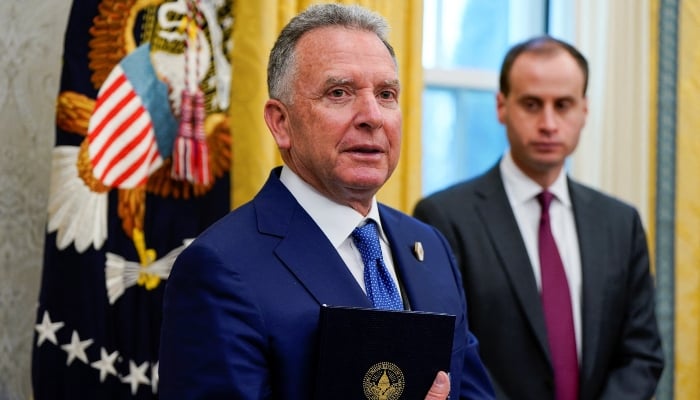
Axios first reported that the country would be Kazakhstan.
A second source familiar with the matter said the United States hopes that Kazakhstan’s entry will help reinvigorate the Abraham Accords, the expansion of which has been on hold during the Gaza war.
Trump has repeatedly said he wants to expand the accords that he brokered during his first term in the White House.
The United Arab Emirates and Bahrain established ties with Israel in 2020 under the Trump-brokered Abraham Accords. Morocco established ties with Israel later the same year.
Trump has been upbeat about the prospects that regional heavyweight Saudi Arabia will finally join the accords since a ceasefire went into effect in Gaza last month, but Riyadh has shown no willingness to move ahead without at least a pathway to Palestinian statehood.
Saudi Arabia’s Crown Prince Mohammed bin Salman is expected to visit the White House on November 18.
Other Central Asian countries such as Azerbaijan and Uzbekistan, both of which have close ties with Israel, have also been seen as potentially joining the Abraham Accords, which is considered a signature foreign policy achievement of Trump’s first term.
Politics
Arab world embraces New York’s new mayor
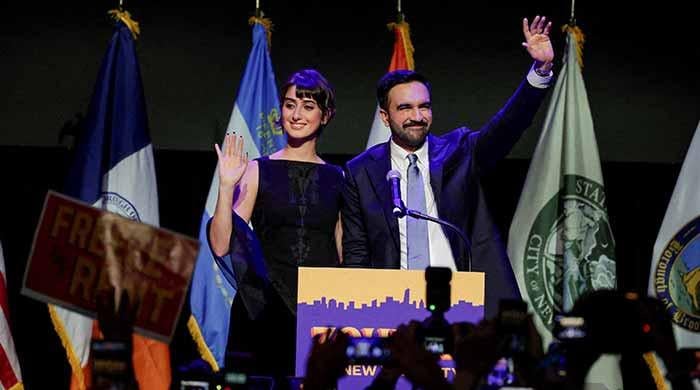
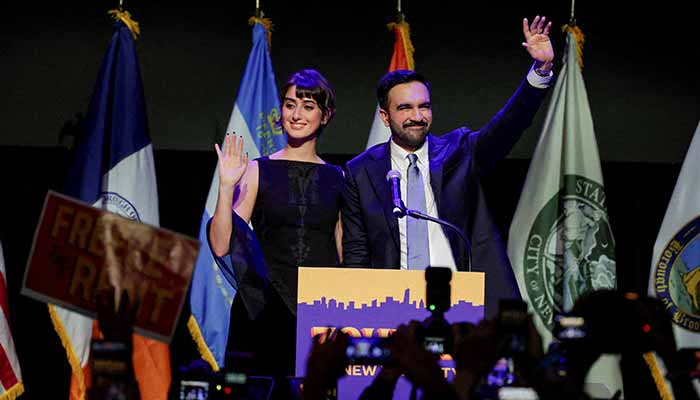
The newly elected mayor of New York City, Zohran Mamdani, is married to Rama Duwaji, a woman of Syrian descent. For many in Syria, that practically makes him family.
That he’s also a Muslim and a supporter of the Palestinian cause doesn’t hurt either, and his election victory has inspired warm feelings and an outpouring of humour in the Arab world.
“I love how Syrians are now calling Zohran Mamdani our brother-in-law,” wrote Karam Nachar, editor-in-chief of Al Jumhuriya, an independent Syrian media outlet.
“The poor man thought he was marrying one Syrian woman! No, habibi Zohran, you belong to the entire nation now.”
Mamdani’s wife Duwaji, a 30-year-old illustrator and designer, was born in Texas to Syrian parents and grew up partly in Dubai. This has prompted many Syrians keen to share in the joy of his win to adopt him as one of their own.
Abdel Karim Bakkar, a Syrian scholar with more than three million Facebook followers, said he was “thrilled that the new mayor of New York City is our brother-in-law, but even more thrilled that he speaks for the marginalised, the working class, and the poor”.
Uganda-born Mamdani will become New York City’s first Muslim and socialist mayor when he takes office in January, and in his victory speech he responded to US President Donald Trump’s anti-immigration platform by celebrating the Big Apple’s diversity.
Knafeh and bodega cats
In a viral campaign video showing the 34-year-old addressing New Yorkers in fluent Levantine Arabic, he grins and pours himself a glass of mint tea: “Now, I know what you’re thinking, I might look like your brother-in-law from Damascus.”
He savours a slice of Palestinian knafeh — the syrupy dessert made of soft cheese and shredded pastry — and pitches his candidacy to New York’s immigrant communities.
“Even if I can’t convince your uncle that the Knafeh Nabulsi from Steinway is better than the one in New Jersey, I promise to do everything I can to help you open your small business, pay your rent, and build your future here,” he said.
Another clip showed Mamdani at a bodega — the small convenience stores in the city that are often owned by Arabs — talking to a cat named Egypt and promising the shop owner a rent freeze in near-perfect Egyptian.
‘A bit of hope’
Rami Kukhun, another Nablus resident and humanitarian worker, said the election had given him “a bit of hope”.
“All the attention on Palestine… on what’s happening in Gaza, might eventually lead to political outcomes that, directly or indirectly, benefit Palestinians,” he said.
In Iran, Mamdani’s victory received wide coverage in local media, which highlighted his Shiite background — the dominant branch of Islam in the country.
Elsewhere in the region, some saw in Mamdani’s mayoral feat an opportunity to reflect on politics in their own countries.
Mamdani was born in Kampala and later lived in Cape Town, South Africa before migrating with his Indian parents, filmmaker Mira Nair and scholar Mahmood Mamdani, to the United States, where he became a citizen in 2018.
-
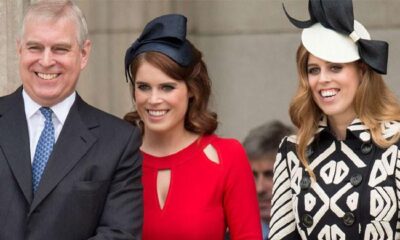
 Entertainment1 week ago
Entertainment1 week ago‘Horrified’ Princess Eugenie, Beatrice ‘may never trust’ Sarah Ferguson, Andrew again
-

 Sports1 week ago
Sports1 week agoDoctor of physical therapy explains Cam Skattebo’s gruesome ankle injury and recovery outlook
-
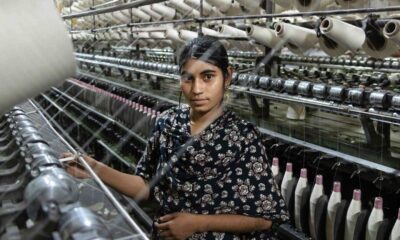
 Fashion1 week ago
Fashion1 week agoLow-cost tactics can ease heat-linked issues in Bangladesh RMG sector
-

 Tech7 days ago
Tech7 days agoDisney content has gone dark on YouTube TV. Here’s what customers should know
-

 Tech7 days ago
Tech7 days agoNew diode chain could be used to develop high-power terahertz technologies
-

 Business7 days ago
Business7 days agoChocolate’s reign over Halloween is under threat from inflation, tariffs and high cocoa prices
-

 Tech1 week ago
Tech1 week agoHow to Keep Subways and Trains Cool in an Ever Hotter World
-
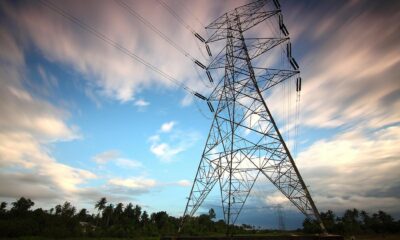
 Tech1 week ago
Tech1 week agoAmid renewable-energy boom, study explores options for electricity market






